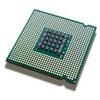We present Argos, a simple approach for adding verifiability to fully homomorphic encryption (FHE) schemes using trusted hardware. Traditional approaches to verifiable FHE require expensive cryptographic proofs, which incur an overhead of up to seven orders of magnitude on top of FHE, making them impractical. With Argos, we show that trusted hardware can be securely used to provide verifiability for FHE computations, with minimal overhead relative to the baseline FHE computation. An important contribution of Argos is showing that the major security pitfall associated with trusted hardware, microarchitectural side channels, can be completely mitigated by excluding any secrets from the CPU and the memory hierarchy. This is made possible by focusing on building a platform that only enforces program and data integrity and not confidentiality (which is sufficient for verifiable FHE, since all data remain encrypted at all times). All secrets related to the attestation mechanism are kept in a separate coprocessor (e.g., a TPM) inaccessible to any software-based attacker. Relying on a discrete TPM typically incurs significant performance overhead, which is why (insecure) software-based TPMs are used in practice. As a second contribution, we show that for FHE applications, the attestation protocol can be adapted to only incur a fixed cost. Argos requires no dedicated hardware extensions and is supported on commodity processors from 2008 onward. Our prototype implementation introduces 6% overhead to the FHE evaluation, and 8% for more complex protocols. In particular, we show that Argos can be adapted for real-world applications of FHE, such as PIR and PSI. By demonstrating how to combine cryptography with trusted hardware, Argos paves the way for widespread deployment of FHE-based protocols beyond the semi-honest setting, without the overhead of cryptographic proofs.
翻译:暂无翻译



